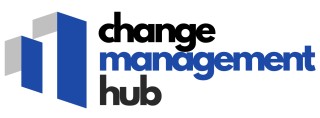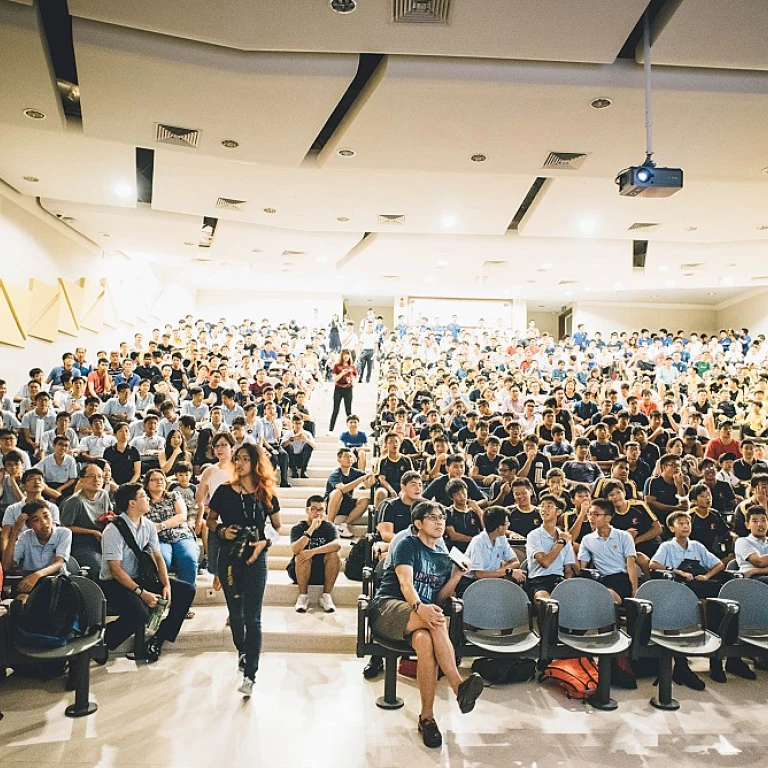Understanding the unique needs of nonprofits in education
Identifying the Core Needs
When nonprofits collaborate with schools, understanding their unique requirements is crucial. These organizations often face challenges that differ from traditional businesses. For instance, they need to manage donor relationships and fundraising activities while simultaneously focusing on educational goals. The right CRM software can bridge this gap by offering tailored features that support both educational and fundraising objectives.
Data Management and Donor Relationships
Nonprofits in education must handle a vast amount of data. This includes donor information, student records, and communication histories. Effective donor management is essential for maintaining strong relationships with contributors. A donor database that integrates seamlessly with existing systems can streamline operations and enhance donor communications. Tools like Raiser Edge and Neon CRM offer robust features for managing these relationships.
Balancing Features and Usability
While the CRM features are important, the platform's usability cannot be overlooked. Nonprofits need a user-friendly interface that minimizes the learning curve for their team members. Platforms like Blackbaud and Edge NXT provide comprehensive fundraising tools while ensuring ease of use for all users.
Supporting Educational Collaboration
The right CRM can support educational collaboration by integrating customer support and relationship management tools. These features help organizations track interactions and ensure that both donors and educational partners are engaged effectively. By choosing the right management software, nonprofits can enhance their collaborative efforts and achieve their educational missions.
For more insights on managing change effectively within these contexts, explore harnessing tools for competitive excellence in change management.
Evaluating CRM features for educational collaboration
Key CRM Features to Foster Educational Collaboration
When evaluating CRM solutions for nonprofits collaborating with schools, it's crucial to prioritize features that enhance educational collaboration. Whether dealing with fundraising or managing donor relationships, the chosen CRM must be tailored to the nonprofit's specific needs.- User-Friendly Interface: A CRM software should be easy for users of all skills to navigate, minimizing the learning curve and allowing quick adaptation. A user-friendly platform ensures that organizations can efficiently manage data and focus on what truly matters: fostering education.
- Integration with Existing Systems: The ideal CRM should integrate seamlessly with other software used by the organization, such as donor management tools and fundraising platforms like Blackbaud, Raiser Edge, Edge NXT, and Neon CRM. This integration supports smooth data transfer and enhances overall operational efficiency.
- Robust Donor Management: Effective donor management is essential for nonprofits. A CRM with advanced donor database capabilities plugs into fundraising strategies effortlessly, allowing nonprofits to nurture donor relationships and track communication efficiently.
- Strong Support System: Customer support and ongoing assistance are vital for nonprofits new to CRM systems. Organizations should look for platforms that offer comprehensive support, whether through direct channels or support literature, ensuring that users can rely on help when necessary.
- Customizable Features: CRM systems equipped with customizable widgets and dashboards allow organizations to tailor the software to their specific needs, whether they're managing matching gifts or donor communications. This flexibility can significantly benefit nonprofits involved in educational initiatives.
Top CRM database options for nonprofits in education
Discovering Market-Leading Software Options
When exploring CRM solutions specifically crafted for nonprofit organizations collaborating with schools, it's important to prioritize platforms that offer tailored features to support educational objectives and donor management alike. The fundamental mission of these nonprofits intertwines with education, making it essential to choose tools capable of managing donor relationships alongside educational partnerships effectively. Several CRM software solutions stand out within the industry, each offering its own unique strengths and potential drawbacks.- Blackbaud CRM: A prominent choice, this platform is built specifically for nonprofit grants and donor relationships, ideal for organizations involved in fundraising initiatives and educational collaboration. Its integration with tools like Raiser Edge provides a robust suite for managing donor data and gifts, although the learning curve might require additional training and dedicated customer support.
- Neon CRM: Known for its user-friendly interface, Neon CRM is particularly popular for its ease of use in donor management and customer relationship management. It’s highly regarded for facilitating donor communications and support, although some organizations may find the customization options slightly limited.
- Raiser's Edge NXT: This platform excels in providing comprehensive fundraising solutions, making it easier for nonprofits to organize matching gift programs and other fundraising tools crucial for furthering educational causes. While powerful, its intensity may present a significant learning curve for some users.
Implementing CRM systems: Change management strategies
Effective Steps for Implementing a CRM in Educational Nonprofits
Implementing a CRM system in the educational nonprofit sector presents unique challenges and opportunities. To ensure a seamless transition, there are several vital strategies organizations should consider.Engage All Stakeholders
Involving key stakeholders from the outset is crucial. Encourage input from users across different departments within the organization. This engagement fosters a sense of ownership and ensures the CRM software reflects the needs of all areas, from fundraising to donor relationships.Define Clear Objectives
Before rolling out any CRM platform like Blackbaud, Raiser’s Edge NXT, or Neon CRM, it’s important to establish clear objectives. Understanding specific goals—such as improving donor communications or enhancing data management—will guide the proper configuration of CRM features.Prioritize User-Friendly Tools
Select a CRM software with an intuitive user experience. A complex system increases the learning curve and can hinder adoption. User-friendly tools encourage consistent use and facilitate the management of data without overwhelming staff.Provide Comprehensive Training
Invest in thorough training sessions to equip staff with the necessary skills to effectively use the nonprofit CRM software. Tailored training ensures that each department understands how to utilize the platform to meet their specific needs, whether in donor management or fundraising platform optimization.Evaluate CRM Features and Scalability
Ensure that the selected CRM includes robust features that support nonprofit initiatives, such as donor database management, customer support modules, and fundraising tools. Additionally, consider the software’s scalability to accommodate future growth and evolving educational collaboration goals.Monitor and Adjust
After implementation, continuous monitoring and adjustment are vital. Regularly assess the CRM system’s impact on donor relationships and operational efficiencies. Use feedback loops to identify areas for improvement, ensuring the platform remains aligned with organizational needs. Implementing a CRM system successfully in a nonprofit working with schools requires strategic change management practices. By focusing on stakeholder engagement, clear objectives, user-friendly design, and ongoing refinement, organizations can achieve a green light for optimized CRM deployment and donor loyalty.Training and support for CRM adoption
Developing Training Initiatives for Seamless CRM Integration
For nonprofits collaborating with schools, the journey of implementing a CRM system goes beyond technical installation—it demands comprehensive training and support. Ensuring that your team is well-versed with the new tools not only enhances productivity but also strengthens donor relationships and educational partnerships. The initial step involves assessing your organization's current level of tech proficiency. Understanding this baseline can help you tailor training programs that address specific learning curves related to your chosen CRM platform. A platform like Blackbaud or Neon CRM comes with diverse features that are crucial for donor management and fundraising, thus, user-oriented training becomes paramount. Additionally, several CRM systems offer structured user support and resources. Tapping into these can greatly ease the transition. Some platforms have inbuilt customer support and community forums where users can share insights and best practices for utilizing CRM features efficiently.- Role-Based Training: Customize training based on user roles. Fundraising teams might focus on donor database management and fundraising tools, whereas admins need to understand configuration intricacies.
- Interactive Sessions: Incorporate hands-on workshops or webinars to demonstrate CRM functionalities in real-time. This approach not only engages stakeholders but also offers practical experience.
- Ongoing Support: Post-implementation, maintaining an ongoing support system is crucial. Consider establishing a dedicated team or partner with tech consultants to aid in troubleshooting and advanced CRM usage.
Measuring success and continuous improvement
Assessing the Impact and Driving Further Development
Measuring the success of a CRM database implementation in a nonprofit collaborating with schools involves more than evaluating technical features. It's about understanding how the new system enhances relationship management with donors, improves fundraising outcomes, and empowers staff to create meaningful and lasting relationships with schools and other collaborators.
- The user experience is critical. A user-friendly platform ensures smooth navigation for users across various levels of technical proficiency. It can reduce the learning curve and boost staff productivity, positively impacting the organization's goals.
- Integrating donor database functionalities with data from school collaborations can lead to improved donor communications and better-targeted fundraising tools. Track how often these tools are utilized and their effectiveness in enhancing donor relationships.
- Identify if there's a significant increase in matching gift opportunities facilitated through the CRM. This metric can serve as an indicator of the system's efficiency in fundraising platform operations.
- Regularly seek feedback from user groups. Understanding their experience can highlight any gaps, and adjustments can be made to ensure constant nonprofit CRM development.
Through these efforts, you can ensure the CRM software doesn't just serve as a technological asset but becomes a catalyst for donor management, fostering more profound connections with schools and other vital partners. It's essential to continually refine your strategies, drawing insights from platforms like edge nxt, raiser edge, or neon crm to stay ahead of challenges and maximize the potential of your chosen fundraising platform.













